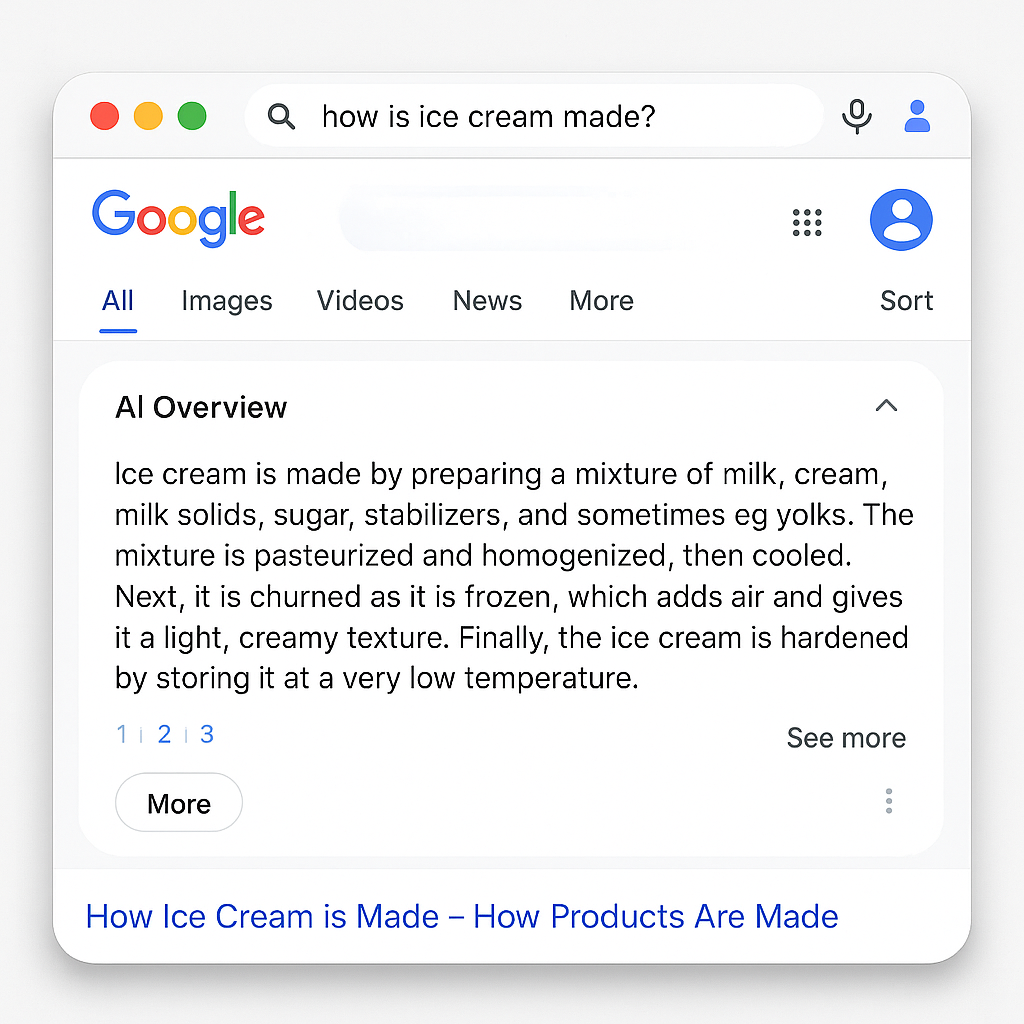How to Rank in Google’s AI Answers: A Brand’s Guide to Dominating AI-Powered Search
How brands can rank in Google’s AI answers by creating helpful, structured, authoritative content optimized for AI-driven search.

In today’s digital world, ranking on Google isn’t just about blue links anymore. With AI-powered search shaping the way people discover information, brands need to rethink their strategy. Google’s AI-generated answers—those instant, concise responses at the top of search results—are quickly becoming the new front page of the internet. Have you searched something recently and had to scroll and scroll to finally get to the first blue link buried way below the fold? The AI Overview... the Snippet... That is the real win now, not being the first blue link. If your brand isn’t showing up above the fold, you’re missing out on a massive opportunity.
Cracking the Code of Google’s AI Answers
Google’s AI Overviews are designed to give users exactly what they’re looking for, instantly. Instead of making users click through multiple websites, AI pulls the best, most relevant content. It's important to point out that the best, most relevant content does not necessarily have to come from one of the page 1 links. In fact, almost half of all Google AI Overview answers (as based on the citations provided) do not come from a page 1 link. Almost half! That means even if a brand has not traditionally won for a query, it can still usurp the results page with a strong answer surfaced by Google's AI Overview. The brands that master this new search landscape will dominate visibility and customer trust.
Just the other day I asked Google for "affordable DIY media outreach tools". The AI Overview gave me great advice on what I can be doing, then recommended software platforms like Just Reach Out.
The Strategy for Securing a Top Spot
1. Write Content That’s Actually Helpful Forget keyword stuffing, those types of blackhat tricks do not work in Google’s AI. The key is to create content that directly answers the most pressing questions your audience has. Think clear, concise, and valuable. If someone asked you in person, how would you explain it? That’s how you should write it, even if it sounds a bit robotic to you. [My company] is a [type of product] that helps [specific ICP] solve [clear pain point] through [unique approach]. <-- this is what works!
When I try to explain how LLMs work to my mom, I can't talk about cosine similarity scores and how that affects brands and the prompts they want to rank for. It has to be simpler, more accessible language! I would try something such as "AI models help you ask questions like you're talking to a friend, and it gives you tailored answers based on your profile and the feedback you provide."
2. Structure It Like Google Loves AI prioritizes content that’s easy to digest. Use bullet points, numbered lists, and short, scannable paragraphs. Answer common questions directly and format them in a way that makes it simple for AI to extract and display in a featured snippet.
3. Use Schema Markup to Help AI Understand Your Content Structured data (schema markup) is a behind-the-scenes way to help Google understand what your content is about. Adding this extra layer of information increases your chances of being pulled into AI-generated answers.
4. Make the User Experience Seamless Google cares about how people interact with your content. If your page loads slowly, isn’t mobile-friendly, or has a high bounce rate, AI is less likely to showcase your brand. Speed, usability, and clarity matter.
Have you ever gone on a website that was filled with so many visuals, unnecessary Javascript, and other things that the page took forever to load? Google does not like that! They are much less likely to surface your content if they can't read it quickly and understand everything well.
5. Speak Like a Human (Because AI is Learning From Humans) AI-generated answers favor content that sounds natural. Long-tail keywords and conversational language help your content align with the way people actually ask questions. Let's say you have a friend that is always buying the newest tech gadgets and is on top of new trends. How would you ask that person for advice buying a new laptop? Would you ask them, "laptop video editing best?" No!! So why would you try to get Google to think that is the information you want to know? You would say “What’s the best laptop for video editing?” Writing like a human increases your chances of ranking.
6. Establish Your Brand as an Authority AI pulls information from sources it trusts. If your brand has strong backlinks, is frequently cited, and produces consistent, high-quality content, Google is more likely to recognize you as an authority worth featuring. In the case of AI ranking, all of this matters. But we know that the right content, written in the correct way with high authority, is your best chance to get your brand to the top.
The Big Picture
AI search is changing the way brands compete for attention. It’s no longer just about traditional rankings. It’s about being the best, most relevant answer to a user’s question. By focusing on high-quality, well-structured, and user-friendly content, brands can position themselves at the top of AI-driven search results and stay ahead in the game.


We’ve been using ChatRank for 34 days, and following their plan, we’ve actually grown over 30% in search visibility

ChatRank helped us go from zero visibility to ranking #2 in a core prompt for our business with only one new blog post!

